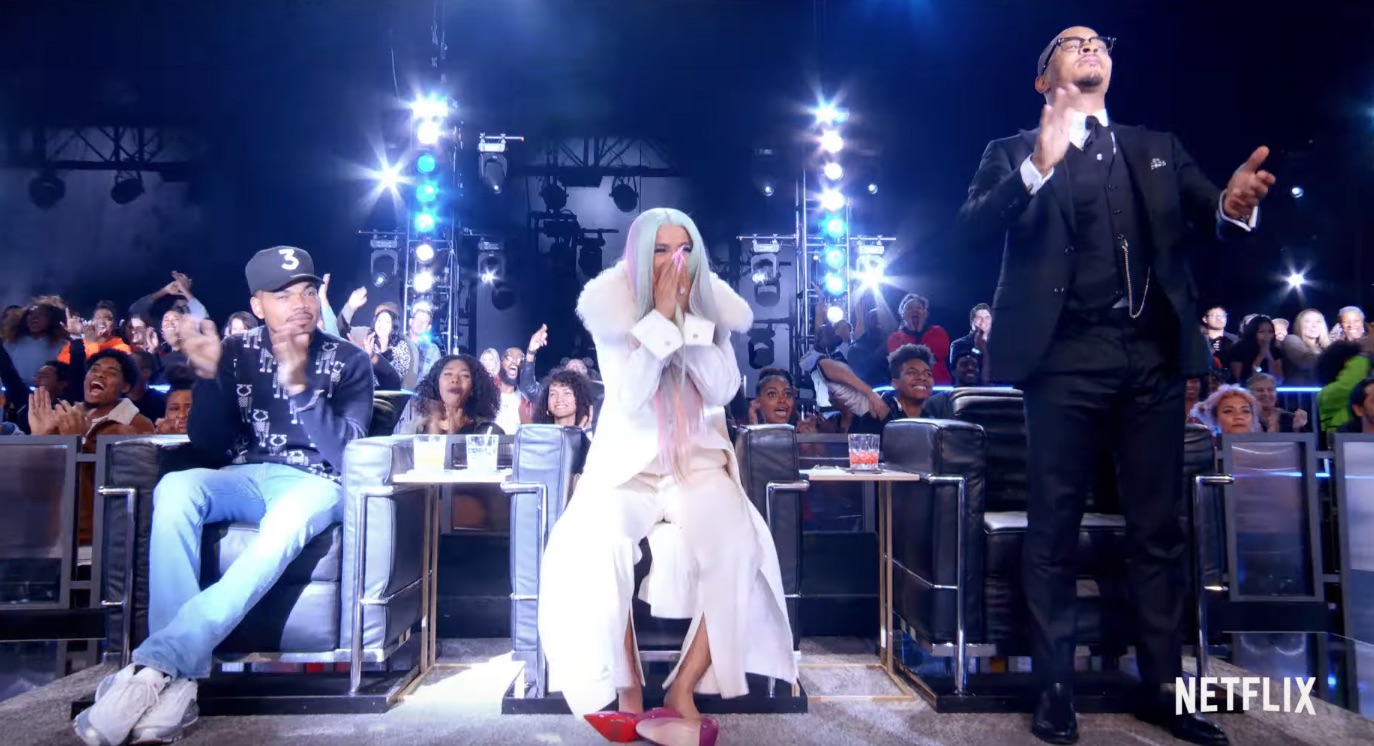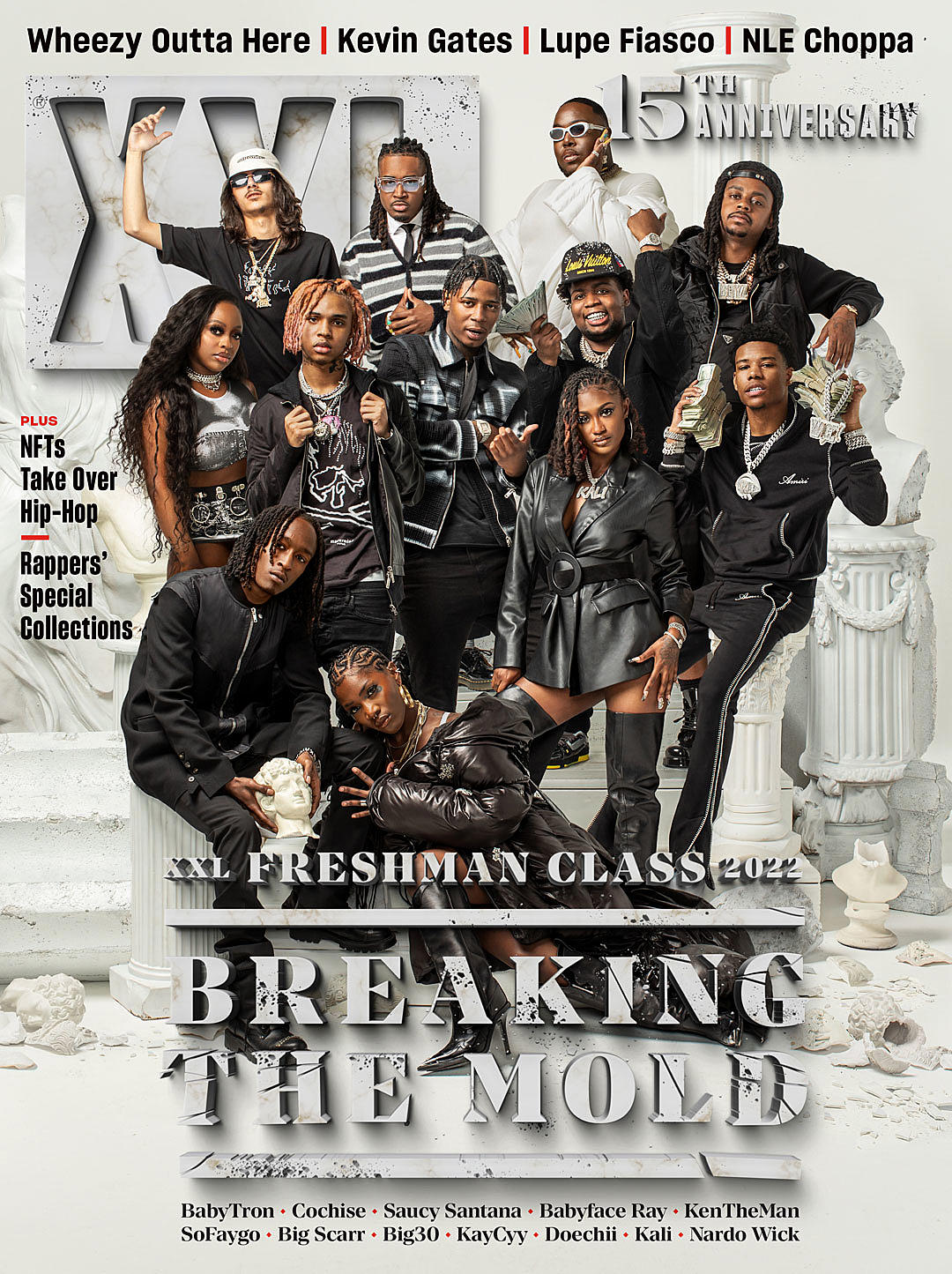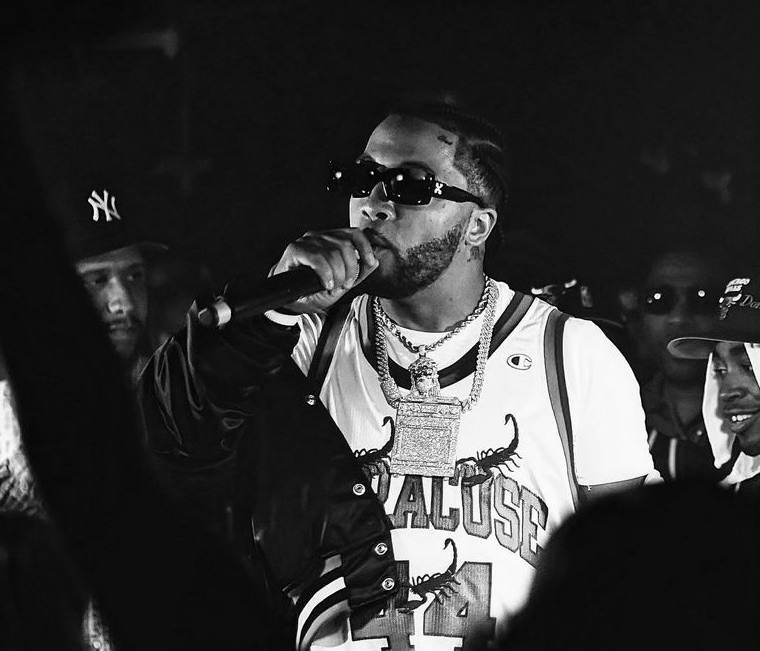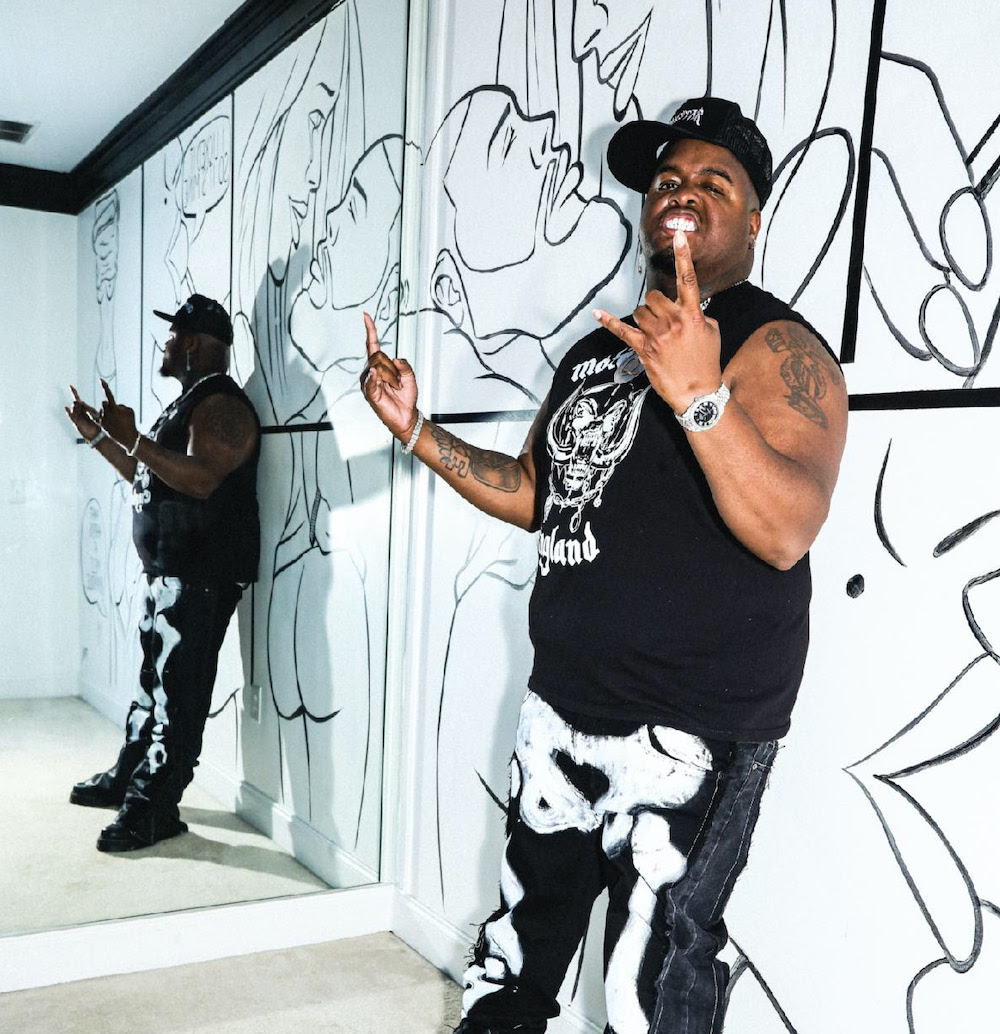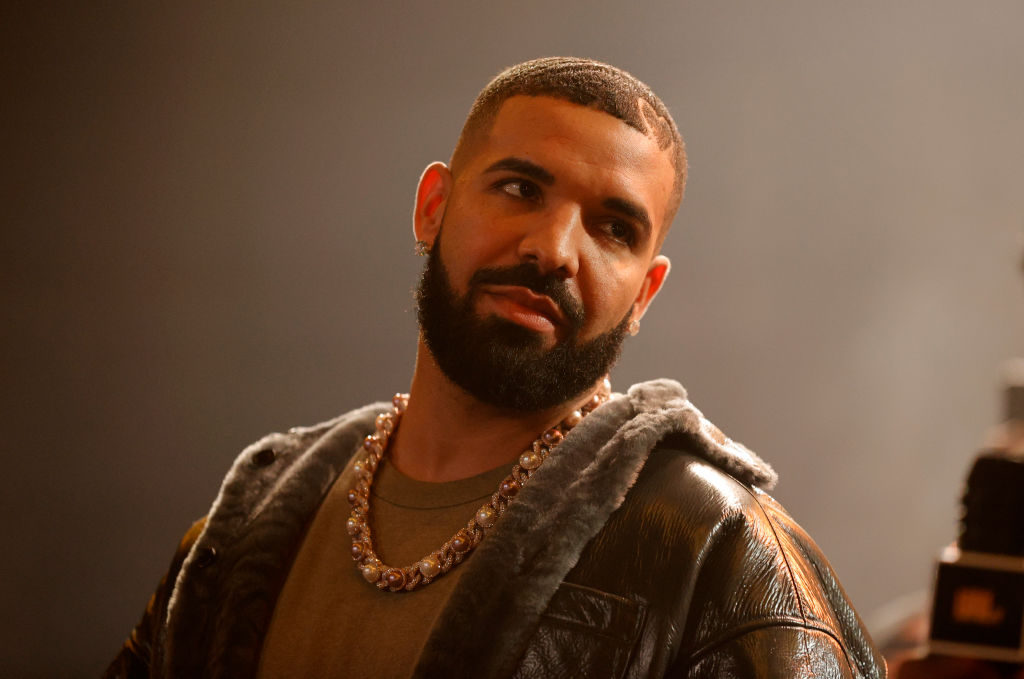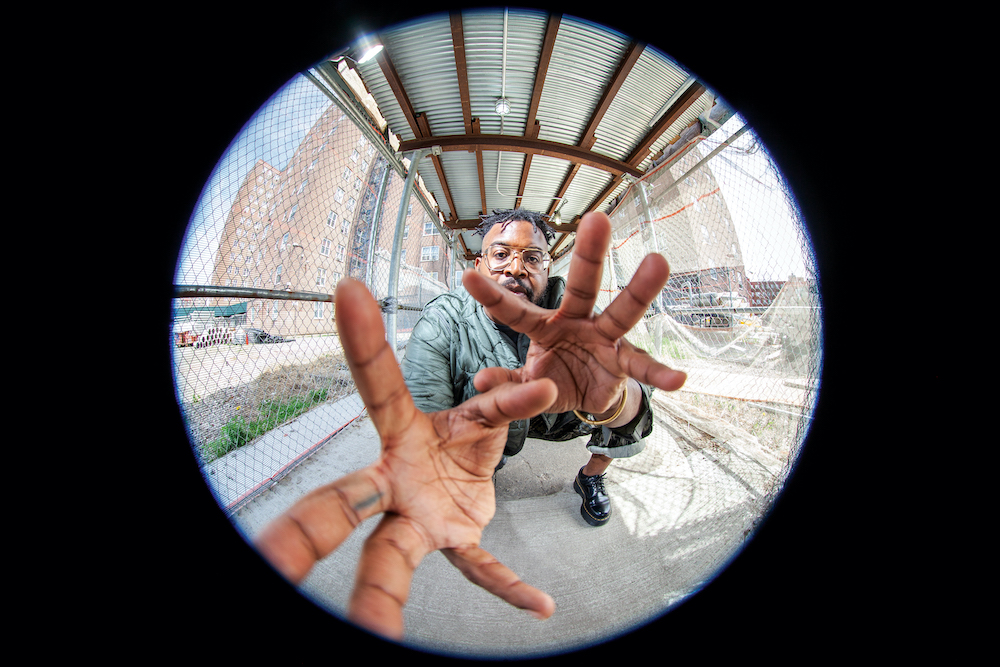Twelve years ago, someone from MTV called me and asked me to come into their office. I went. I met Ashton Kutcher in the lobby. It was weird.
This particular MTV person was working on a new reality show, tentatively titled Rapping With The Stars. The idea: A bunch of celebrities would try to learn how to rap. They would have celebrity coaches. They would have judges. One by one, they'd all be winnowed down, and then somebody would win something. I'd been writing about rap music in New York for a couple of years, and someone thought that maybe I'd be good for the Simon Cowell asshole role. I said it sounded like fun. I never heard back after that one meeting.
The show eventually aired under the title Celebrity Rap Superstar. It was bad. Perez Hilton rapped. Kendra Wilkinson rapped. Sebastian Bach rapped. Eventually, Shar Jackson, mostly famous for being Kevin Federline's ex, was declared the winner. The judges were DMC, Da Brat, and the radio DJ Big Boy. There was no mean judge.
There was a surprising level of starpower involved in Celebrity Rap Superstar. (It would've been fucking ridiculous if they'd brought me in to judge, and I'm glad they didn't.) Kevin Hart hosted the show. Actual rap legends served as coaches: Too Short, Redman, Kurupt, eventual winning coach MC Lyte. But the show itself was grating and loudly stupid and borderline unwatchable. I'm not sure what the point of it was, other than maybe to fill a hole in MTV's schedule.
Celebrity Rap Superstar is one of the weirder reality-show rap competitions, but it's not the only one. The contestants from Celebrity Rap Superstar were already famous, but most of our past rap-competition shows have at least ostensibly been about finding potential rap stars, diamonds in the rough. As far as I know, the first of these shows came from the same year that Survivor debuted in the US -- the earliest days of reality TV as we know it. In 2000, HBO broadcast the Blaze Battle, a one-night tournament-type show. The late Eyedea, already on his way to indie-rap infamy, won it amidst some absurd technical problems.
Two years later, Diddy took over the show Making The Band, which had previously chronicled the formation of the also-ran boy band O-Town. Diddy wanted to do something different with it. He wanted to put together a rap group. This made for tremendously compelling TV -- more when it was hungry rappers all fighting each other to see who would make it into the group, less when it was already-signed rappers who were supposed to be in a group together just fighting each other. But Da Band, the group that came out of it, only lasted one album, and none of them really tasted fame because of it. (I liked their song "Bad Boy This, Bad Boy That," though.) The whole concept, it turned out, worked a lot better when Diddy just tried to put together a pop group; that's how we got Danity Kane. These days, Da Band's season of the show is mostly just known for the skit where Dave Chappelle made fun of it.
From 2007 to 2013, the BET video-countdown show 106 & Park had a regular feature called Freestyle Friday, where rappers would get a bit of time to battle each other, and where champions would get to come back the next week. I loved Freestyle Friday, but Freestyle Friday only rarely led to actual rap careers. Ruff Ryders took a flyer on Jin, the Queens rapper who won a bunch of weeks in a row and who was briefly the first Asian-American rapper with a major record deal. Jin never got to release an album on Ruff Ryders, and he got eaten up on the battle circuit in the years after, but he did get to be in 2 Fast 2 Furious, so that's pretty good. (Sadly, unlike his co-stars Tyrese and Ludacris, Jin did not get to join the Toretto gang in future Fast movies.) A few other kinda-prominent rappers -- Loaded Lux, Hollow Da Don, Nickelus F, Vocab, Jin opponent Skyzoo -- had Freestyle Friday runs. But Freestyle Friday was not exactly an incubator of talent.
[videoembed size="full_width" alignment="center"][/videoembed]
There have been shows that I never saw: Missy Elliott's 2005 UPN show The Road To Stardom (which apparently featured Yelawolf), a 2016 BET show called One Shot (which I'm only now learning existed). My favorite example is the one that wasn't even trying to come up with a star. Ego Trip's The White Rapper Show, from 2007, was structured as a competition show, but it was more interested in exploring the way race works within rap music. The white contestants had to be taught that they were, essentially, guests within rap. They had to be taught that they could not, under any circumstances, use the N-word. But the show was funny, too. The 2008 Ego Trip follow-up Miss Rap Supreme was also pretty good, but the Ego Trip guys unsurprisingly had more fun dealing with race than with gender.
Last week, we got our next contestant. Netflix's Rhythm + Flow is by far the biggest, most expensive rap-competition reality show in history. It has huge-name judges: Cardi B, Chance The Rapper, and T.I., all of whom seem like they'd be too busy for this. It has Netflix-sized production budgets. It has the full American Idol format: hometown auditions, elimination rounds, the whole thing. If any reality show was going to create an actual rap star, you'd think this would be the one.
https://www.youtube.com/watch?v=_Ogn-71aeNQ
Netflix usually dumps entire seasons of its shows online at at time, but it's trying something with this one, attempting to replicate some version of the week-to-week magic of reality TV. It's broken its first season up into four-episode chunks, and it's posting them once a week. The first four episodes all capture audition rounds. All three judges meet up in LA, along with tremendously entertaining guest judge Snoop Dogg, for the pilot. Then the three judges all go to their hometowns to team up with local guest judges, and come up with more potential candidates. I haven't yet seen how things look when the show gets to assessing the actual talent levels of the people it's rounded up. (The second chunk of episodes went up this morning, but I'm writing this on Tuesday afternoon.)
Rhythm + Flow, at least thus far, is perfectly watchable reality TV. The show would be better if all three judges were there for all the audition rounds, but I'm sure Netflix had to sort out some kind of byzantine contract situation to get any of them at all. In any case, they're all extremely fun to watch. It's fun when they're all in a car together, discussing how T.I. knows so many "fancy words." ("I’ve been to prison, Cardi. I spent a lot of time reading the dictionary.") It's fun when they hang out with peers in their respective hometowns, or when they thoughtfully break down what all these newer rappers are doing right or wrong. It's fun when Cardi sends potential contestants packing: "Am I gonna be thinking about you while I'm home, getting fucked? No." (Cardi, who has reality-TV experience of her own, is an absolute master at this. She is delightful.)
At this point, it's too early to tell whether any of the contestants are actually any good or not. They all get moments to rap in clubs for the judges, and a few of them get backstory video packages. But this isn't a singing show, and those little moments are never enough for anyone to really stand out in any way. If you're half-watching Rhythm + Flow in the background while you go about your day, the show dissolves into an endless parade of sad life tales and blurry, out-of-breath verses.
The contestants who intrigue me the most are the ones I already know: New York club rapper Cakes Da Killa, Chicago drill veteran Sasha Go Hard. The Chicago judges all receive Sasha warmly, as a respected peer. The New York judges clearly don't know who Cakes is, and they're both confused and impressed, which is exactly how I'd expect Fat Joe and Jadakiss to respond to Cakes Da Killa. Cardi asks Cakes whether he's ready for the mental weight of being the first prominent gay rapper, which just goes to show that this show was taped a while back, before the Lil Nas X summer happened. Rap moves fast. It doesn't always stick by Netflix production schedules.
And that is, in effect, the problem with the entire concept of the rap-competition show. Rap stardom is not a top-down thing. It can't be bestowed on anyone. Rappers find fame through some mysterious combination of charisma, virality, backstory, timing, and luck. Can't-miss rap prospects miss all the time. The genre depends on word of mouth, on online buzz, on the right video showing up in your feed at the right moment. The genre changes with ridiculous speed. (Rhythm + Flow does what it can with this. I liked seeing Twista trying to figure out how to react to a white kid with makeup, pink hair, and a baby doll's head dangling from his belt.) It's a messy, chaotic artform, and you can't really judge a rapper based on something as televisual as a quick nightclub performance.
But pop stardom is just as hard to figure out. Singing competition shows still do huge numbers, but they don't produce big stars anymore. If anything, a franchise like The Voice has done more for its judges, like Blake Shelton and Adam Levine, than for its contestants, whether or not they win. (It's telling that Kelly Clarkson, the first pop star to be forged in the reality-show flames, is now a coach on The Voice.) So maybe Rhythm + Flow is really just meant to be good TV, not to put forth an actual supernova talent. If that's the goal, thus far, it's doing pretty well. If it wants to change music in any bigger ways, it's going to have a tough time. We'll see. Whatever happens, it won't be worse than Celebrity Rap Superstar.
FURIOUS FIVE
1. YoungBoy Never Broke Again - "Carter Son" I almost wrote this week's whole column about YoungBoy Never Broke Again, the deeply troubled 19-year-old Baton Rouge rapper who just released the AI Youngboy 2 album and who is unquestionably one of the most popular people in the genre right now. YoungBoy has been arrested again and again for fucked up reasons: assault, domestic violence, attempted murder. He's part of a depressing recent lineage of rappers (XXXTentacion, Kodak Black, 6ix9ine, YNW Melly) whose transgressions just make them more sympathetic in the eyes of the kids who love them. This is a fucked-up situation, and I don't see how it resolves itself. But YoungBoy is also a compelling rapper -- emotive, melodic, genuinely bluesy -- and AI Youngboy 2 has some great songs. This is one of them. I hope he finds some sort of peace, and I really don't know what else to say about him. 2. Smoke DZA, Benny The Butcher, & Pete Rock - "Drug Rap" Pete Rock is one of the greatest rap producers who has ever lived, and I love that he is continuing to crank out meditative, rich boom-bap for underground perennials. He's got a whole EP coming out with Smoke DZA and Benny The Butcher, and judging by this track, the three of them make a hell of a package. 3. Conway The Machine - "No Women, No Kids" Conway is a hard, forceful, unpretentious rapper, and yet the Alchemists's zonked-out, drumless fog music gets the best out of him. I love that. 4. Bexey & Jackboy - "London To 1800" Bexey is a white face-tatted Lil Peep acolyte from London. Jackboy is a Kodak Black associate from Florida, and if you Google him, most of the results are about how he was once arrested for eating a whole bunch of weed at a traffic stop. (He was trying to wolf it all down before the police found it.) They make no sense together, and yet they make perfect sense. I appreciate their shared commitment to not saying any words that I can understand. 5. Liljitm3n - "Watch His Body Drop" Yelling breathless death threats over heavy pianos is one of the great timeless American artforms, one of our country's great gifts to humanity. You're welcome, world.IT WAS ALL GOOD JUST A WEEK AGO
Dude was down Adams Morgan fooling 😂😂😂 pic.twitter.com/lGOXM1ukHE
— Moneybagg aYo💰 (@GoHeadYung_) October 13, 2019
